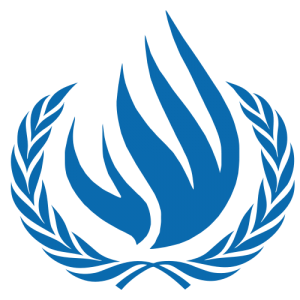Last weekend, we ran a piece about the Detroit Water and Sewerage Department (DWSD)’s cutting of water and sewer services to thousands of households, and how a coalition of activists were appealing to the United Nations Special Rapporteur on the Human Right to Safe Drinking Water and Sanitation saying that the DWSD’s actions constituted a violation of basic human rights.
Yesterday, the United Nations replied. A United Nations team of experts agreed with the activists, saying in a press release: “Disconnection of water services because of failure to pay due to lack of means constitutes a violation of the human right to water and other international human rights. Because of a high poverty rate and a high unemployment rate, relatively expensive water bills in Detroit are unaffordable for a significant portion of the population.”
Catarina de Albuquerque, the Special Rapporteur on the human right to water and sanitation, said; “Disconnections due to non-payment are only permissible if it can be shown that the resident is able to pay but is not paying. In other words, when there is genuine inability to pay, human rights simply forbids disconnections.” She went on to say; “When I conducted an official country mission to the US in 2011, I encouraged the US Government to adopt a federal minimum standard on affordability for water and sanitation and a standard to provide protection against disconnections for vulnerable groups and people living in poverty. I also urged the Government to ensure due process guarantees in relation to water disconnection.”
Leilani Farha , the Special Rapporteur on adequate housing as a component of the right to an adequate standard of living, and on the right to non-discrimination in this context, was concerned over children being sent to foster homes because their family’s home was not considered adequate due to having no water. She went on to say; “If these water disconnections disproportionately affect African Americans they may be discriminatory, in violation of treaties the US has ratified.”
According to international human rights law, it is the state’s obligation to provide urgent measures, including financial assistance, to ensure access to essential water and sanitation. The experts concluded: “The households which suffered unjustified disconnections must be immediately reconnected.”
But, what about the companies who refuse to name the chemicals that they’re pumping into our drinking water through wastewater injection when extracting oil through fracking? We’ve covered North Carolina’s law making it a crime to disclose chemicals used in fracking; why aren’t we talking about the obvious human rights violation inherent in that?
We as a nation are quick to call out and/or assist other nations when they can’t provide such essential needs as clean water for their citizens, yet we turn a blind eye to corporations or states who let corporations write their laws making it a crime to know what’s in the water we drink. Or companies that leak chemicals or coal ash into our rivers. Or companies that poison our coasts with oil spills.
Occupy World Writes is horrified by what’s happening in Detroit, and call on the Detroit City Council and the state of Michigan to follow the U.N. recommendation. We also call on North Carolina to immediately repeal the section of the Energy Modernization Act that criminalizes the right of citizens to know what the oil companies are contaminating their water with, and for all of the corporations involved with fracking to do the same. And, if by chance they should refuse, we call on the Department of Justice to live up to their name and prosecute these people to the full extent of the law.
We need to reinforce the simple fact that profits do not trump basic human rights. People over profits.


